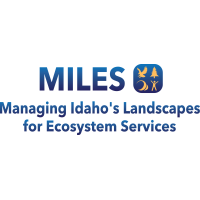This dataset includes the interview questions and responses of 20 stakeholders when asked about river restoration.
Stakeholders include scientists, interest groups, leaders, professionals, government and NGO employees, and activists; they are individuals or groups that play an increasingly important role in public policy. As such, stakeholders are frequently used as a source to better inform public decision making. Given the growing importance of stakeholders’ understanding and thus communication concerning the issues on which they inform the public, it is timely to ask: How do stakeholders comprehend, or mentally construct an understanding of the policy issues upon which they are asked to weigh in? In an attempt to address this issue, this paper uses a case study of a policy issue, river restoration. Results from a survey of 85 stakeholders and a follow up interview of 20 stakeholders shed light on whether stakeholders predominantly prefer to think of river restoration in terms of science or through policy narratives. The findings indicate that stakeholders prefer explanations that use science and the engaged citizen narrative when they think about the river’s restoration. Additionally, stakeholders who work for government particularly emphasize that the river should be described in scientific terms. We use this data to further analyze what elements of science and narratives are divisive to stakeholders and which are not and conclude with advice on how stakeholders can speak in a non-divisive way to the public and other stakeholders.
For more information about this study, see the publication: https://doi.org/10.1177/0952076716671034
Data and Resources
| Field | Value |
|---|---|
| Modified | 2019-03-18 |
| Release Date | 2018-11-19 |
| Publisher | |
| Identifier | 34c8264b-e71c-47d8-83a1-422e41008a9d |
| NKN Identifier | 34c8264b-e71c-47d8-83a1-422e41008a9d |
| Spatial / Geographical Coverage Area | POLYGON ((-112.63458251953 42.780686484906, -112.63458251953 43.011074212627, -112.26379394531 43.011074212627, -112.26379394531 42.780686484906)) |
| Spatial / Geographical Coverage Location | Pocatello, Idaho, USA |
| Temporal Coverage | Thursday, January 1, 2015 - 00:00 to Sunday, May 31, 2015 - 00:00 |
| Language | English (United States) |
| License | |
| Author | |
| Contact Name | Mark McBeth |
| Contact Email | |
| Public Access Level | Public |


![[Open Data]](https://assets.okfn.org/images/ok_buttons/od_80x15_blue.png)